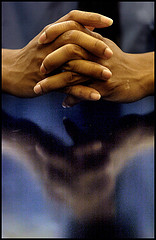 After chemotherapy treatments, you can have lingering side effects. Several, unfortunately, seem to hit the hands-things like numbness and tingling, rough skin, split nails, and even carpal tunnel syndrome.
After chemotherapy treatments, you can have lingering side effects. Several, unfortunately, seem to hit the hands-things like numbness and tingling, rough skin, split nails, and even carpal tunnel syndrome.
To help you deal with these troubling symptoms, we’ve gathered a few recommendations. Whatever you may be experiencing, be sure to tell your doctor. Even if you don’t think it could be connected to your cancer treatments, it often is, and your doctor may be able to help.
Lingering Numbness & Tingling: According to Dr. V. K. Gadi, writing for Everyday Health, Taxol (paclitaxel) is associated with neuropathy (numbness), and also weakening of the reflexes. Sometimes just waiting it out will result in an improvement. Physical therapy may also help. Other survivors recommend massage, acupuncture, and supplements like vitamin B and glutamine (10 grams 2-3 times a day). Mark Stengler, MD and contributor to Daily Health News, recommends acetyl-L-carnitine, a natural substance that can have a regenerative affect on the nerves, along with a B-complex vitamin, vitamins E and C, selenium, and pycnogenol (an antioxidant). Read our other post for more natural recommendations.
Split Nails: Chemotherapy can cause nails to split, sometimes all the way to the bed. Try a cuticle cream at night, to nourish and hydrate the growing nail. (CV Skinlabs Restorative Skin Balm works perfectly.) File frequently to eliminate any hangnails or rough edges. Some survivors also recommend Evonail, a French-made nail hydrator that helps rejuvenate split, brittle nails. Protect hands with rubber gloves when doing household chores, and be cautious when using nail products. See our post for more information.
Carpal Tunnel Syndrome: According to drugs.com, carpal tunnel syndrome is included in the Arimidex list of possible side effects. If you suspect you may have it (symptoms include burning, tingling, or itching numbness in the palm and the fingers, especially the thumb and the index and middle fingers), check with your doctor. Several non-surgical treatments are available, like anti-inflammatory drugs, coricosteroids, or natural solutions like stretching and strengthening exercises, acupuncture and chiropractic care. Surgical options may also be an option for more severe cases.
Dry, Rough Hands: Most chemotherapy treatments leave skin dry and rough, particularly on the hands. Extremely dry skin can cause itching, irritation, flakiness, and possible open wounds. “One of the more annoying side effects of chemo they didn’t talk about,” says survivor kendrak, “was how dry my hands were-to the point of cracking.” First, wear gloves-often! Gloves when you’re cleaning, gloves when it’s cold outside, gloves whenever you feel the need. Soft cotton gloves can serve as general protectors. Avoid hot water and use lukewarm to wash, and pat (don’t rub) hands dry. Use only sensitive, organic cleansers, and try heavy-duty moisturizers. Try CV Skinlabs Restorative Skin Balm for deeply hydrating, overnight moisturizing, and our Body Repair Lotion for daily use. Avoid fragranced products, bubble bath, soap, and antibacterial products.
Have you had a lingering side effect on your hands? Tell us your story.
Photo courtesy Box of Light via Flickr.com.

